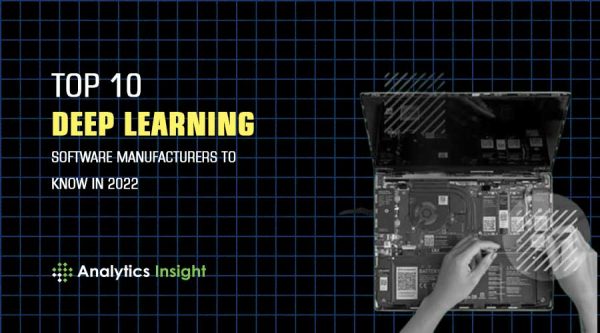Check out these top 10 deep learning software manufacturers in 2022
Deep learning is the functional side of artificial intelligence that allows computers to learn, just like how humans learn. Deep learning tools or programs will be able to imitate the functioning of the human brain for processing data and identifying patterns for decision making. Deep learning algorithms help businesses to develop models that can predict more accurate outcomes to help them make better decisions.
DeepPy
DeepPy is an MIT-licensed deep learning framework. DeepPy tries to add a touch of zen to deep learning as it. DeepPy relies on CUDArray for most of its calculations. Therefore, you must first install CUDArray. Note that you can choose to install CUDArray without the CUDA back-end which simplifies the installation process.
Torch
Torch is a scientific computing framework with wide support for machine learning algorithms that puts GPUs first. It is easy to use and efficient, thanks to an easy and fast scripting language, LuaJIT, and an underlying C/CUDA implementation.
OpenCV
OpenCV (Open Source Computer Vision Library) is an open-source computer vision and machine learning software library. OpenCV was built to provide a common infrastructure for computer vision applications and to accelerate the use of machine perception in commercial products. Being a BSD-licensed product, OpenCV makes it easy for businesses to utilize and modify the code.
Microsoft
Microsoft builds business-critical deep learning models at scale. It empowers data scientists and developers to build, deploy, and manage high-quality models faster and with confidence. It also accelerates time to value with industry-leading machine learning operations (MLOps), open-source interoperability, and integrated tools.
Clarifai
Clarifai is the leading deep learning AI platform for computer vision, natural language processing, and automatic speech recognition. It helps enterprises and public sector agencies gain insights into their unstructured image, video, text, and audio data. This platform is powered by state-of-the-art machine learning and comes with the broadest repository of pre-trained AI models to search, sort, and organize unstructured data and help companies build turnkey AI solutions. These models can be used out-of-the-box or fine-tuned to detect explicit content, faces, embedded objects, and text within images as well as predict various attributes such as celebrities, food items, textures, colors, and more.
TFLearn
TFlearn is a modular and transparent deep learning library built on top of Tensorflow. It was designed to provide a higher-level API to TensorFlow in order to facilitate and speed up experimentations while remaining fully transparent and compatible with it.
Keras
Keras is a deep learning API written in Python, running on top of the machine learning platform TensorFlow. It was developed with a focus on enabling fast experimentation. Keras empowers engineers and researchers to take full advantage of the scalability and cross-platform capabilities of TensorFlow 2: you can run Keras on TPU or large clusters of GPUs, and you can export your Keras models to run in the browser or on a mobile device.
AWS
The AWS Deep Learning AMIs provide machine learning practitioners and researchers with the infrastructure and tools to accelerate deep learning in the cloud, at any scale. You can quickly launch Amazon EC2 instances pre-installed with popular deep learning frameworks and interfaces such as TensorFlow, PyTorch, Apache MXNet, Chainer, Gluon, Horovod, and Keras to train sophisticated, custom AI models, experiment with new algorithms, or learn new skills and techniques.
AV Voice
AV Voice Changer takes the audio from your microphone, allows you to make changes to it, and then sends it to another program in real-time. Audio-visual learning, aimed at exploiting the relationship between audio and visual modalities, has drawn considerable attention since deep learning started to be used successfully.
Nuance
Nuance’s ambient clinical intelligence (ACI) technology is an example of how it is accelerating the development of solutions for urgent problems in the U.S. healthcare system by training its automatic speech recognition (ASR) and natural language processing (NLP) models using NVIDIA’s Automatic Mixed Precision capabilities on Volta and Turing GPUs with Tensor Cores.
Source: analyticsinsight.net









